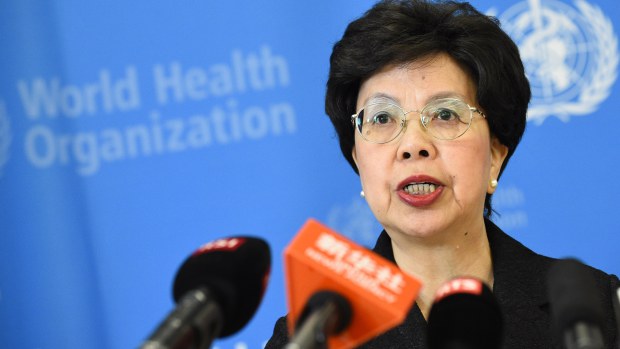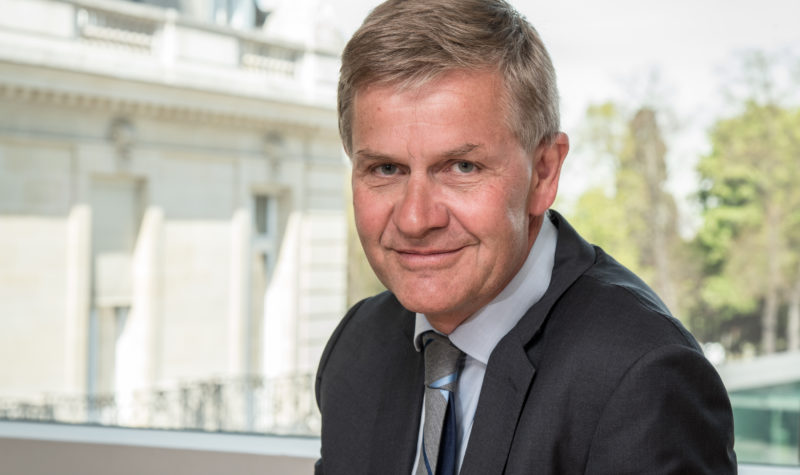As three United Nations bodies come together to work as one to address the root environmental causes of ill health, Dr Margaret Chan (Director-General of the World Health Organisation – WHO), Erik Solheim (Executive Director of the United Nations Environment Programme – UNEP) and Petteri Taalas (Secretary-General of the World Meteorological Organisation – WMO) stress the need to clean up the global environment, which they describe as a “deadly zone”

There are many compelling reasons why we need to clean up the global environment. One of the most pressing is that a polluted environment is a deadly one. Every year, almost 12.6 million people die from diseases associated with environmental hazards, such as air, water or soil pollution, and climate change. That is one in four deaths worldwide.
We now know that the single greatest environmental risk to human health is through our most basic need – the air that we breathe. For years, governments have struggled to improve access to energy so they can promote economic development. But the largely unsustainable energy path that the world has followed has come at an unacceptable cost. Air pollution, overwhelmingly resulting from energy production and use, causes heart and lung diseases and cancer, resulting in approximately 6.5 million deaths each year.
The energy sources that cause the release of deadly air pollutants, such as black carbon, also release greenhouse gases, including methane and carbon dioxide. Together, these drive climate change, which threatens to undermine all of the environmental conditions on which human lives depend – food, water, and shelter.
Urbanisation and environmental health

Photo credit: OECD/Michael Dean
By 2050, 66% of the world’s population will live in urban areas, which are often characterised by pollution as well as heavy traffic, poor housing, limited access to water and sanitation services and other health risks.
Environmental risks to health, like many of the challenges facing our world, are too complex and interconnected to be dealt with by simplistic, short-term solutions or by individual actors. That’s why the 2030 agenda for sustainable development, adopted by all countries, is so important. This, the world’s first ever global development plan, offers a unique opportunity for coherent, long-term action by all of society for all of society.
Many governments are now bringing several ministries and departments together, for example linking up environment, climate and health sectors, to take joint action. We saw this recently at the Conference of the Parties to the United Nations Framework Convention on Climate Change when ministers of health and environment answered a call by the Government of Morocco to sign the Marrakech Ministerial Declaration on Health, Environment and Climate Change. The declaration recognises that there is currently no global mechanism to bring the environment and health sectors together to work on saving lives and protecting the planet, and calls on the relevant United Nations (UN) agencies to put a mechanism in place.
The challenge now is to follow up this declaration with actions.

Simple interventions, such as reducing vehicle emissions and investments in rapid transit systems, will save lives. Benin, Côte d’Ivoire, Ghana, Nigeria and Togo have committed to introduce low sulphur fuels by July 2017. Athens, Madrid, Mexico City and Paris plan to ban diesel vehicles by 2025. Implementing proven interventions to address short-lived climate pollutants could save over 2.4 million lives a year, and reduce global warming by approximately 0.5 C, by 2050. In many cases the benefits will more than cover the cost of intervention.
Failure to take into account the health impacts of air pollution and other environmental damages is estimated to amount to a $5.3 trillion subsidy to polluting energy sources. Failure to protect populations from environmental risks is not just a human cost, but places an additional strain on health services. Health service-related cost is among the largest financial burdens for governments and individuals.
Just as it is in both the individual and the collective interest of countries and ministries to work together to address complex problems, it is essential for all UN agencies to work more closely together to support them.
The Marrakech Declaration
The United Nations Environment Programme (UNEP), the World Meteorological Organisation (WMO) and the World Health Organisation (WHO) are working together to support countries to follow through on the aims of the Marrakech Declaration. We are committed to joining our technical and financial resources behind a single environment and health plan. Air pollution will be our first priority due to the huge health impacts that it causes, as well as its close links with other risks, such as climate change and chemical contamination.
Each of us will bring our wealth of expertise in climate, health or environment. WMO, through national meteorological agencies and their network of ground and remote-sensing stations, provides the essential data on climate, and air quality conditions, and facilitates the delivery of related weather and climate services. UNEP works with Member States’ Ministries of Environment and other key policy-makers to help prevent and reverse environmental degradation, thereby supporting individuals and communities. WHO, with national Ministries of Health, monitors and assesses health exposures and health impacts, and provides guidance on how to reduce them.
By June 2017 our agencies will have developed a joint plan, seeking wider engagement from other agencies and from the scientific, environment and health communities at large. In the words of the African proverb: “If you want to go fast, go alone; if you want to go far, go together.”
